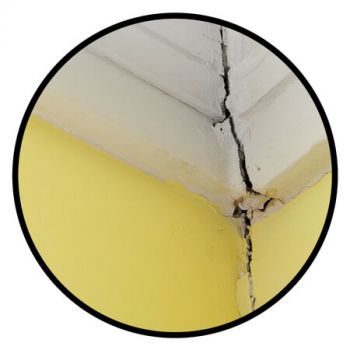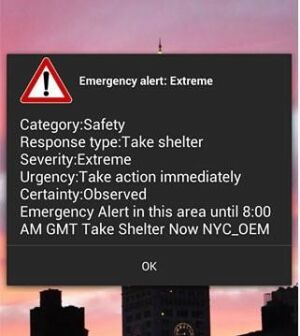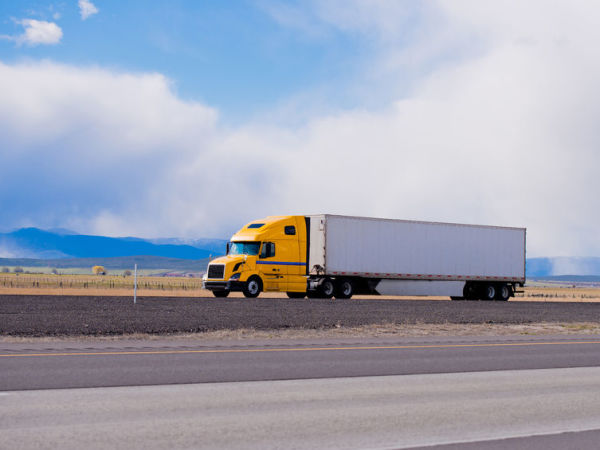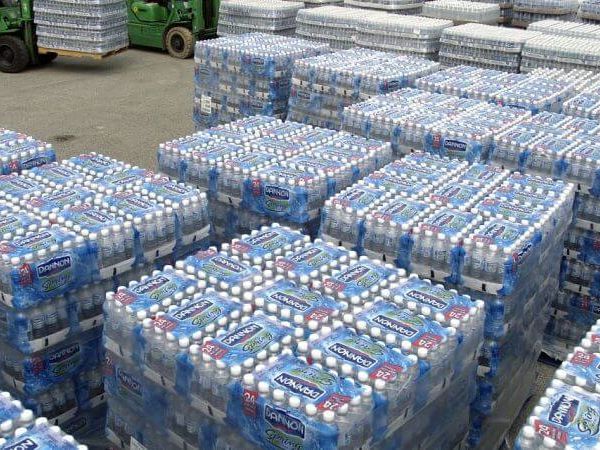Preparing your home to weather a flood, hurricane, or other natural disasters well ahead of emergency benefits you in a few ways: you’ll have a more organized home, as well as peace of mind if you have to evacuate, and there will be less to worry about when you do receive an alert that a storm is coming.
How to prepare for natural disasters in advance
If you have not done so already, the first thing you need to do is determine what type of emergencies you are likely to experience where you live, such as flooding, earthquake, tornado, or wildfire. Use this information to make an emergency plan and prep accordingly Then, you can start taking steps to ensure your home is protected in advance of any emergencies. Here's how to prepare for a flood and other natural disasters:
1. Review your insurance policy
Check that your insurance policy covers damage your home may incur from natural disasters, and purchase any additional insurance you might need. For instance, a lot of insurance providers don’t automatically include flood insurance in standard homeowner policies.
| PRO TIP: If your policy doesn’t cover floods, look into the National Flood Insurance Program (NFIP). |
2. Install safety devices & alarms
By law, residential homes in most states are required to have at least one smoke detector and carbon monoxide detector on each floor. In addition to these, you may want to pick up some other safety devices and alarms that can help alert you to changes in your home during a natural disaster and mitigate some of the damage:
- Fire extinguisher - the National Fire Protection Association (NFPA) recommends one per floor
- Water alarm - place in basements and ground floors to be alerted to incoming water, especially if you live in a flood-prone area
- Sump pump alarm - placed in your sump pump, this alarm alerts you to higher than normal water levels
- Automatic shutoff valves - automatically shuts off your water main when a leak is detected, preventing additional water damage in the event of an earthquake
- Check valves - installed in plumbing pipes, these will help keep floodwater from backing up into the drains
| To find out what the carbon monoxide and smoke detector laws are in your state, check out this interactive map from Kidde. |
3. Secure your home and belongings

During disasters, ordinary items can become dangerous hazards. There are many steps you can take to secure your home and its contents, ranging from the simple and low-cost updates to more expensive investments that may take time to implement. These updates include:
- Repairing defective electrical wiring, leaky gas connections, and cracks in foundation or ceilings.
- Ensuring all shelves are fastened securely, and large and heavy objects are stored on lower shelves.
- Hanging pictures, mirrors and anything framed away from sitting and sleeping areas.
- Storing weed killers, pesticides, and other flammable products away from heat sources
- Cleaning and repairing chimneys, flue pipes, vent connectors, and any other vents
- Keeping your roof, awnings, and gutters clean from debris.
| PRO TIP: Digitize or make hard copies and store important documents, photographs, and other cherished memories in water and fireproof containers, so that you don’t have to worry about permanently losing them if the original copies get destroyed. |
| Earthquake preparation |
|
In earthquake zones:
|
| Flood safety |
|
In a floodplain or coastal region at risk for tsunamis:
|
| Wildfire safety |
|
If wildfires are a risk:
|
| Hurricane and tornado safety |
|
If you're located in Tornado Alley, or experience hurricane season:
Get more tips for protecting your home from wind damage. |

Things to do when you get an emergency alert
Depending on the type of alert you receive and the timeline you are working with, begin taking the final steps to secure your house, and prepare to take shelter at home or evacuate as soon as you receive an emergency alert. Always follow guidelines from the authorities and other official sources.
- Turn off gas valves and other utilities in your home only if alerted to do so.
- Turn off propane tanks and unplug small appliances.
- Fill bathtubs and sinks with water for flushing the toilet and cleaning.
- Fill your car's gas tank.
- Park your car facing in the direction of your evacuation route.
- Locate and secure pets in a safe location where they can be easily collected if you need to evacuate.
| In the event of a power outage: |
|
| Flood preparation |
|
| Hurricane and tornado preparation |
|
| Wildfire preparation |
|
Things to do before evacuating
If you have to evacuate and you are sure you have time, take a moment to secure your home:
- Unplug appliances.
- Turn off all utilities.
- Securely close and lock all doors, windows, and the garage.


